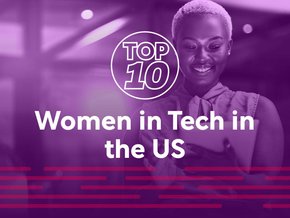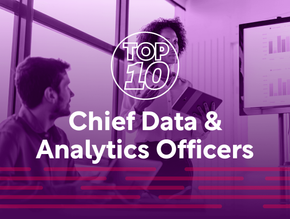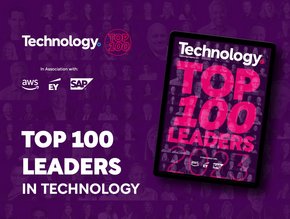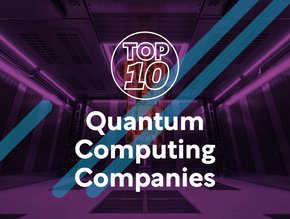Top 10: Biggest innovations of 2023
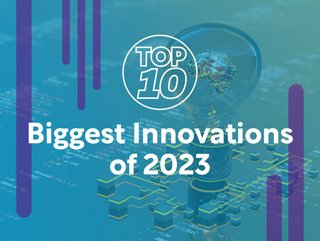
In 2023, the technological landscape has been dramatically changed by a series of groundbreaking innovations. From advanced robotics solutions to quantum computing advances and, of course, the seemingly unstoppable rise of generative AI, Technology Magazine explores 10 of the leading innovations from the last year.
10: Helping tackle multicloud complexity
In 2023, cloud technology has seen significant innovations, particularly when it comes to tackling the challenges of multicloud.
According to research by SAS, organisations today are operating across three private clouds, with nearly half (42%) also relying on at least two public cloud providers for business applications, analytics and hosting business-critical data.
At its Explore 2023 event in Barcelona, VMware said it is helping organisations successfully adopt a ‘Cloud Smart’ approach to turn this multi-cloud complexity into a competitive advantage.
9: Advanced robotics
Robotics technology has advanced, with applications ranging from industrial automation to personal robots.
Earlier this year Amazon announced it had started testing Digit, a two-legged robot that can grasp and lift items, which comes as a result of its partnership with Agility Robotics. Amazon says the device will first be used to shift empty tote boxes, a ‘highly repetitive’ process. Amazon began using robotics in its facilities in 2012, and since then the company says it has added hundreds of thousands of jobs worldwide.
8: Web3 and blockchain
Blockchain technology has evolved beyond cryptocurrencies, with innovations in decentralised finance offering new avenues for investment and financial transactions. These technologies are challenging traditional financial systems and introducing more secure and transparent methods of conducting business.
McKinsey & Company advises that there are challenges and risks to address with Web3, but that this technology could have “potentially transformative effects.”
7: Hyperautomation
A term coined by Gartner in 2020, hyperautomation is a disciplined, business-driven approach that organisations use to rapidly identify, vet and automate as many business and IT processes as possible. According to RPA software company UiPath, hyperautomation brings together several components of process automation, integrating tools and technologies that amplify the ability to automate work.
As its Global VP of Automation Innovations Boris Krumrey explained to Technology Magazine earlier this year, AI-powered automation is taking the technology to a whole new level. “The rise of generative AI is a very exciting development in the world of automation, as generative AI and automation can work together to unlock revolutionary benefits for businesses.”
6: Quantum computing breakthroughs
This year witnessed significant advancements in quantum computing.
At its annual Quantum Summit, IBM debuted its latest ‘Heron’ processor, holding an architecture engineered to deliver IBM’s highest performance metrics and lowest error rates of any IBM Quantum processor to date.
Additionally, the company unveiled IBM Quantum System Two - the company’s first modular quantum computer and cornerstone of IBM’s quantum-centric supercomputing architecture. Located in Yorktown Heights, New York, it has begun operations with three IBM Heron processors and supporting control electronics.
5: 5G and beyond
The rollout of 5G networks has accelerated in 2023, offering unprecedented speeds and connectivity, with companies such as Nokia and T-Mobile utilising its full potential. Moreover, research into 6G – the next generation of networks – has begun, promising even more transformative changes in wireless technology.
From empowering the Internet of Things ecosystem to facilitating the seamless integration of AI and immersive technologies, the advent of 6G networks is expected to reshape industries, economies, and society as a whole.
According to a report by the 5G Infrastructure Association, 6G will bring ‘a near-instant and unrestricted complete wireless connectivity’, with the technology set to radically reshape the way enterprises operate.
4: Sustainable and green technologies
Exponential growth in AI, cloud computing and other technologies requires more data centre capacity. According to The World Economic Forum’s 'Top 10 Emerging Technologies of 2023' report, several technologies are emerging aimed at making the goal of net-zero-energy data centres a reality. These include using water or dielectric liquid cooling to dissipate heat.
AI-enabled systems can meanwhile analyse and optimise energy use in real-time, maximising efficiency and performance – reducing energy consumption by as much as 40% at Google’s data centres.
3: Zero trust
The concept of zero trust security – based on a ‘never trust, always verify’ mentality – has been hailed throughout 2023 as a new and effective solution to the current challenges surrounding hybrid and remote working.
A report by Cisco found that nine in 10 organisations have begun to embrace zero-trust security globally. And speaking with Technology Magazine, Global CTO of Dell Technologies John Roese predicts that this momentum will continue, with companies starting to see zero trust as ‘the norm’ in 2024.
“Zero trust will become the default end state people are moving towards,” he said. “It’s the right answer on how to change the curve on cyber.”
2: AR and VR
Augmented and virtual reality technologies promise to blur the lines between the physical and digital worlds, creating new opportunities for interaction and learning.
Apple’s launch of its Vision Pro headset – a much-anticipated entry into the space – was described as the ‘beginning of a new era for computing’ by its CEO Tim Cook, with the product promising to transform the spatial computing sector.
The company’s headset could be a catalyst for faster growth in the metaverse, which a Bloomberg report found may reach US$615bn by 2030.
1: 2023 was the year of generative AI
Undoubtedly the main talking point from 2023, AI technologies have continued to become more sophisticated, with significant advancements in natural language processing, deep learning and AI ethics.
OpenAI's multimodal GPT-4 model has shown remarkable capabilities in generating human-like text, signalling a new era in human-computer interaction, while the latest version of its image creation tool, DALL-E 3, can create more realistic images than before.
Google’s Gemini model meanwhile, released in December 2023, is able to master human-style conversations, language and content, as well as understand and interpret images, code, drive data and analytics and be used by developers to create new AI apps and APIs.
******
For more insights into the world of Technology - check out the latest edition of Technology Magazine and be sure to follow us on LinkedIn & Twitter.
Other magazines that may be of interest - AI Magazine | Cyber Magazine | Data Centre Magazine
Please also check out our upcoming event - Sustainability LIVE Net Zero on 6 and 7 March 2024.
******
BizClik is a global provider of B2B digital media platforms that covers executive communities for CEOs, CFOs, CMOs, sustainability leaders, procurement & supply chain leaders, technology & AI leaders, fintech leaders as well as covering industries such as manufacturing, mining, energy, EV, construction, healthcare and food.
Based in London, Dubai, and New York, Bizclik offers services such as content creation, advertising & sponsorship solutions, webinars & events.


